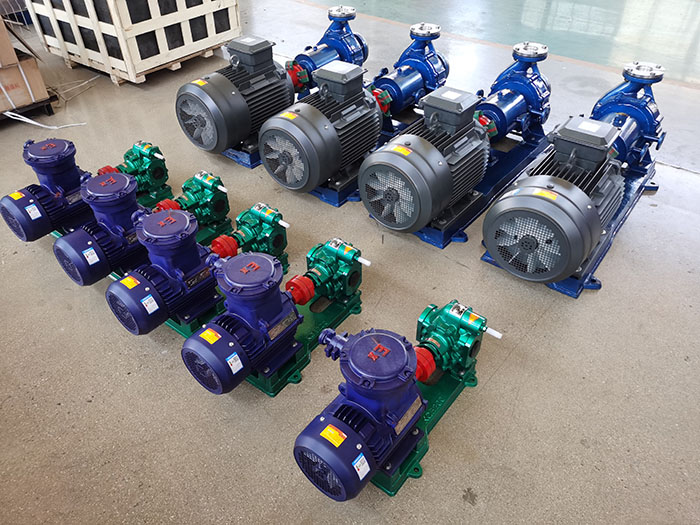Industrial asphalt gear transfer pumps play a crucial role in the construction and maintenance of roads and highways. These pumps are responsible for transferring asphalt from storage tanks to application equipment. However, there are instances when these pumps fail to build pressure, leading to delays in the construction process and potential project setbacks.
There are several reasons why an industrial asphalt gear transfer pump may fail to build pressure. One common issue is a clogged or blocked suction line. Over time, debris, solid particles, or even hardened asphalt can accumulate in the suction line, restricting the flow of asphalt into the pump. This obstruction prevents the pump from building the necessary pressure to transfer the asphalt effectively. Regular inspection and cleaning of the suction line can help prevent this problem.
Another potential cause of pressure failure is a worn-out or damaged impeller. The impeller is responsible for creating the necessary pressure to transfer the asphalt. Over time, the impeller may become worn or damaged, resulting in a decrease in its efficiency and ability to build pressure. Regular maintenance and inspection of the impeller can help identify any signs of wear or damage and allow for timely repairs or replacement.
Additionally, issues with the pump's motor or power supply can also lead to pressure failure. A malfunctioning motor or inadequate power supply can prevent the pump from operating at its optimal capacity, resulting in a failure to build pressure. Regular maintenance of the motor and ensuring a stable power supply can help mitigate these issues.
Furthermore, improper installation or misalignment of the pump can also contribute to pressure failure. If the pump is not correctly aligned with the motor or other components, it can lead to increased friction, decreased efficiency, and ultimately, a failure to build pressure. Proper installation and alignment, along with regular checks, can help prevent such problems.
To address these issues, it is essential to have a comprehensive maintenance and inspection program in place. Regular cleaning of the suction line, inspection of the impeller, and monitoring of the motor and power supply can help identify potential problems before they escalate. Additionally, proper training and education for operators on the correct installation and alignment of the pump can contribute to its efficient operation.
In conclusion, the failure of an industrial asphalt gear transfer pump to build pressure can significantly impact construction projects involving asphalt. Understanding the common causes of pressure failure, such as clogged suction lines, worn-out impellers, motor or power supply issues, and improper installation or alignment, is crucial in preventing and addressing these problems. By implementing a proactive maintenance and inspection program, operators can ensure the smooth operation of the pump and minimize project delays.
